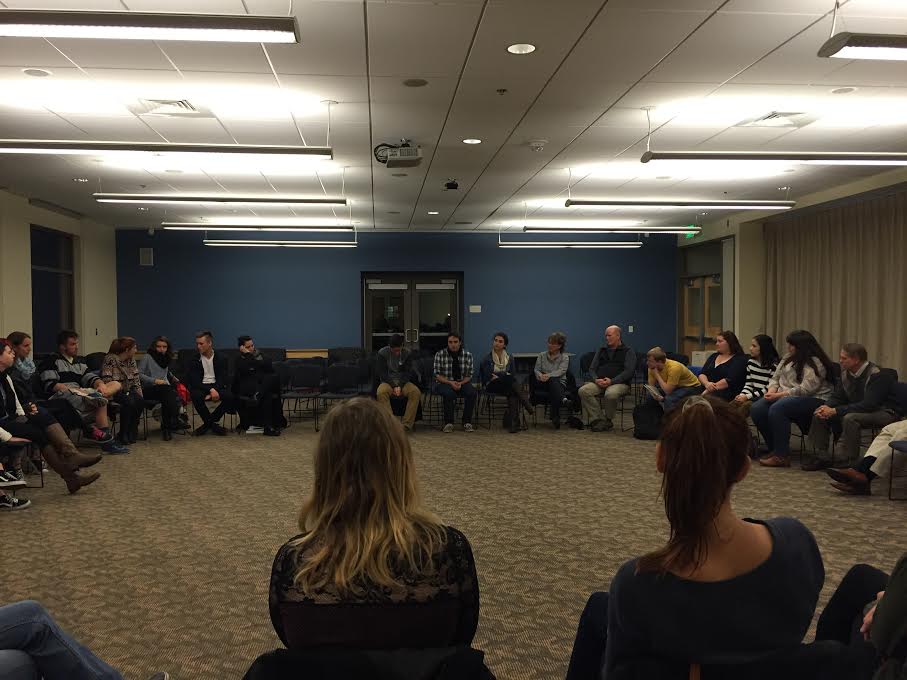Some of Southern Oregon University’s French students say they may be in the United States longer than originally expected in the wake of recent terrorist attacks in Paris. A fact which was experienced for travelers trying to get to and from Paris right after the attacks but has since eased as flights have opened back up.
It was one of many impacts discussed Tuesday evening, in the Meese Auditorium at the Hannon Library, as a full room of concerned students and faculty of Southern Oregon University came together to discuss the recent terrorist attacks in Paris.
With France still under a state of emergency, flights in and out of France were dependent upon the nation’s view of potential terrorist threats in the wake of six separate attack in Paris killing at least 129 people last week. Additionally, two Air France flights from the US to Paris were diverted overnight, following telephoned bomb threats. Most flights are going in and out without issue but it’s dependent on perception of threat.
The discussion, facilitated by Professors Marianne Golding, Daniel Morris, and Jay Mullen; was organized by student and French Club President Amy Layton, “Although we are focusing on France tonight, as this is a French Club event, we are definitely aware of the attacks elsewhere in the world and feel for them as well”, said Layton. “Tonight, though, I wanted to make sure that interested students, faculty, and community members in the area could talk and process their feelings about the Paris attacks, together”.
The event began on a somber note, with some background discussion about the attacks, but quickly turned into a declaration of France’s solidarity and resilience. ISIS, an alleged Islamic terrorist group based throughout various enclaves in the Middle East claimed in a statement released to the press, that they orchestrated the attack on the city center. The letter called Paris a capital of “prostitution and vice”. When one student in attendance raised the question of why Paris was attacked, Margaux Raggi, a 19 year old student from France currently studying at SOU, had an answer, “Because we do go out. We drink champagne. That is how we live. It’s important to remember that we are French people, and we’re not gonna stop. That’s all you can do.”
A good portion of the conversation was spent on topics relating to social media, from the effects that it may have in allowing terrorists free, discreet communication to how social media is used to find followers and spread a message.
Much of the night’s discussion also centered on how we, as Americans, can assert genuine concern without sounding false. Many in attendance seemed to struggle with expressing themselves publicly, and much of this part of the discussion centered on the current wave of putting a French flag over your Facebook profile picture. Students and administration alike said they struggled with feeling inauthentic when using the graphic, mostly because of the geographic distance between France and
the United States. However, the general consensus seemed to be that, especially for the French students, seeing the overwhelming outpouring of support seemed to be a relief. A few French students spoke of recalling similar feelings during the time
following the attacks in the US on 9/11. One student, Madeline Scannell, summed it up this way, “It’s a different world now, and the world needs a way to mourn together”.
SOU’s president, Dr. Roy Saigo seemed to agree, ending his campus wide email on the topic with the sentiment “The only way through the hard times is together”.




